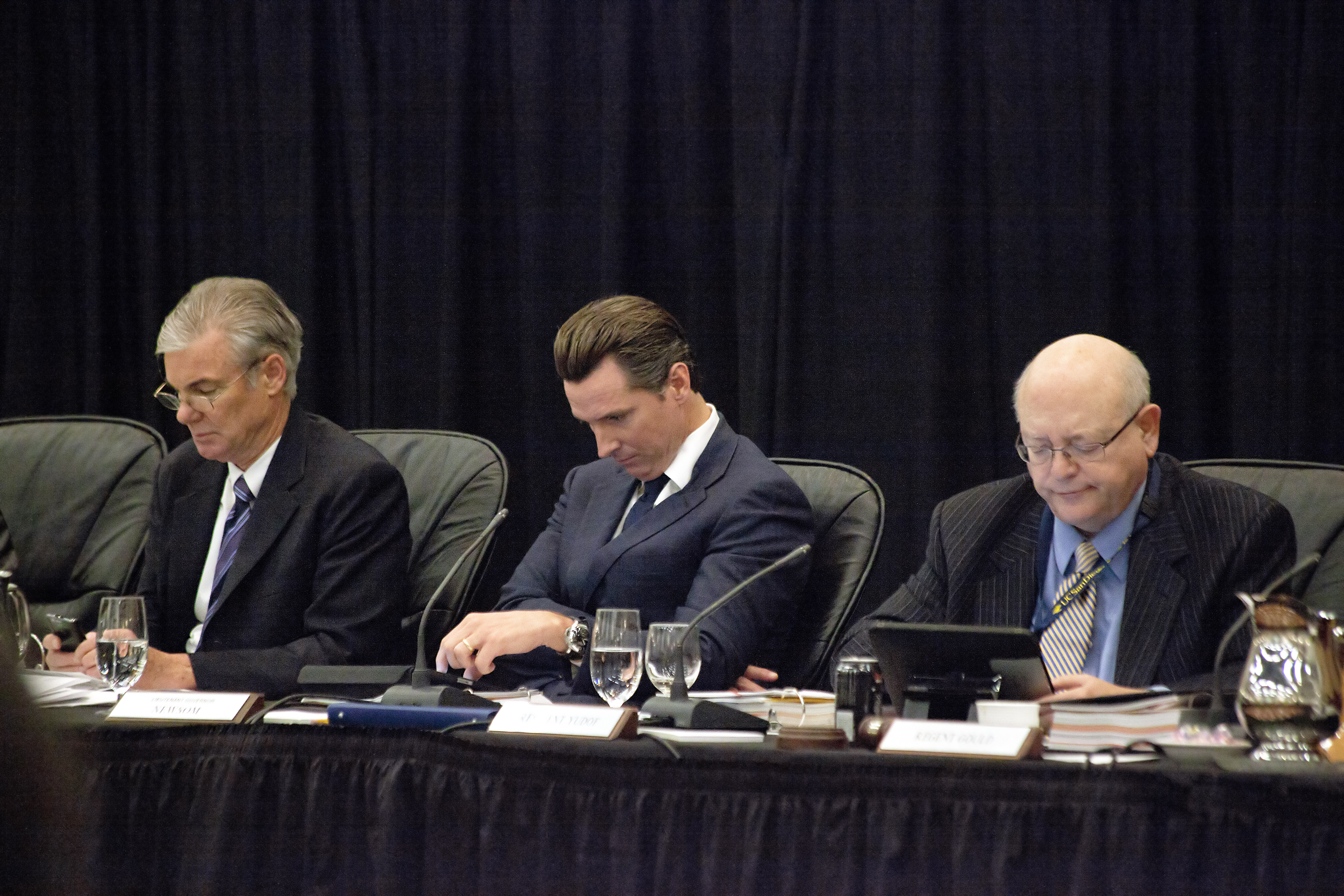SAN DIEGO —””mdash; UC officials painted a stark picture of a multi-billion dollar shortfall and declining state support.
In response to deep cuts proposed by Gov. Jerry Brown, the UC aims to ramp up advocacy efforts and reach out to legislators, alumni and stakeholders for political and financial support. This was a running theme at the UC Board of Regents meeting Wednesday at UC San Diego.
The ability to stave off tough decisions is fading fast, Chairman Russell Gould said. He said to brace for an emergency.
“This is a permanent change, not a one-time problem,” Gould said.
The pronouncements come as UC students pay more, and UC faculty and staff earn less.
President Mark Yudof told the board he refuses to sacrifice quality in the face of cuts. But striving to maintain quality may mean conceding the other two pillars of the UC ““ access and affordability.
Curtailed enrollment, reduced faculty and staff, system-wide layoffs and more nonresident students may be on the horizon if cuts continue, Yudof said.
“I think the governor is dead serious in what he’s saying,” Yudof said.
Gov. Jerry Brown is proposing a $500 million cut to the UC. Put in perspective, that amount is equal to how much UCLA alone receives from the UC.
Much hinges on whether voters approve to extend a package of temporary tax increases in June, Yudof said. A similar package was shot down in 2009.
Claudia Magaña, president of the UC Student Association, told the regents that students understand the difficult decisions ahead. But she said she does not want students left out of the decision-making process.
She said the fee increases are exhausting students’ wallets too quickly and severely. Although financial aid has gone up to some extent, she said not enough has been done to protect middle-class families that are ineligible for financial support.
Kelli Fallon, the chief of staff for the external vice president’s office at UCLA, said multiple campaigns are underway, including the development of a petition protesting the cuts. The petition will be sent to the governor in February.
In addition, Fallon said the office will be sending students to a lobby conference in Sacramento from Feb. 25-28.
“I think with the (most recent) fee increases, students are getting more apathetic,” Fallon said. “But they have a lot of voice right now.”
Advocacy efforts are also underway in the form of social media. UC Twitter feeds and Facebook sites are growing in popularity, said Daniel Dooley, senior vice president of external relations. Yudof had 3,230 followers on Twitter as of press deadline.
Officials also lauded UCLA for its own advocacy and outreach site, “IOUCLA,” launched last year.
Despite the push for advocacy, other problems face the UC. Faculty and staff are underpaid, according to a pair of reports presented to the board. Competing universities have awarded cost-of-living raises to employees that the UC simply cannot afford.
In addition, the state does not pay for UC retirement. Employees started paying into the retirement fund last spring to shore up rising costs. This was effectively a pay cut.
With the UC falling behind in competitiveness, other schools made more of an effort to poach faculty this past year. They met with some success, said Shane White, the chair of the UCLA Faculty Welfare Committee.
Faculty members at UCLA are also aging. Large numbers of baby boomers will be retiring in the coming years, said UCLA Academic Senate Chairwoman Ann Karagozian.
That provides opportunities to bring in fresh talent. But the UC is having trouble staying competitive. The UC’s salary lags far behind competing institutions, and the retirement package is looking less attractive, White said.
